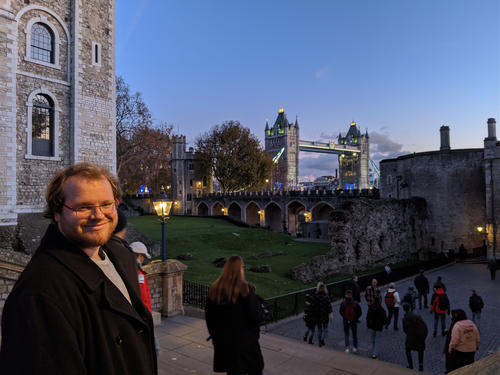
I am Andrew K. Hirsch, an Assistant Professor in the Department of Computer Science and Engineering at the University at Buffalo, SUNY. There, I help lead the Databases and Programming Languages group. My research is on programming languages for decentralized systems. My focus is on choreographic programming, a programming paradigm for message-passing concurrency. I also work on information-flow security, and on other, related, ideas.
Before I came to Buffalo, I was a postdoc at the Max Planck Institute for Software Systems (MPI-SWS) in Saarbrücken, Germany. I worked with Deepak Garg in the Foundations of Security group. I earned my Ph.D. in 2019 from Cornell University in Ithaca, NY, USA. There, I worked with Ross Tate on programming-language foundations, focusing on the theory of computational effects. Before that, I attended The George Washington University in Washington, DC, where I earned a Bachelor’s of Science degree in Computer Science and Pure Mathematics.
News
Students
Doctoral
Masters
Undergraduate
- Julia Montouri
- Jacqueline Parke
- Sam Carillo
- Sean Gaygen
- Owen Cavenaugh
Recent Alumni
Publications
Below is a list of my most recent publications. You can view all of my publications here.Recent Publications
-
Published in OOPSLA 2025.
-
Published in PLACES 2025.
-
Published in the Journal of Functional Programming.
-
Published in ECOOP 2023.
-
Published in OOPSLA 2023.